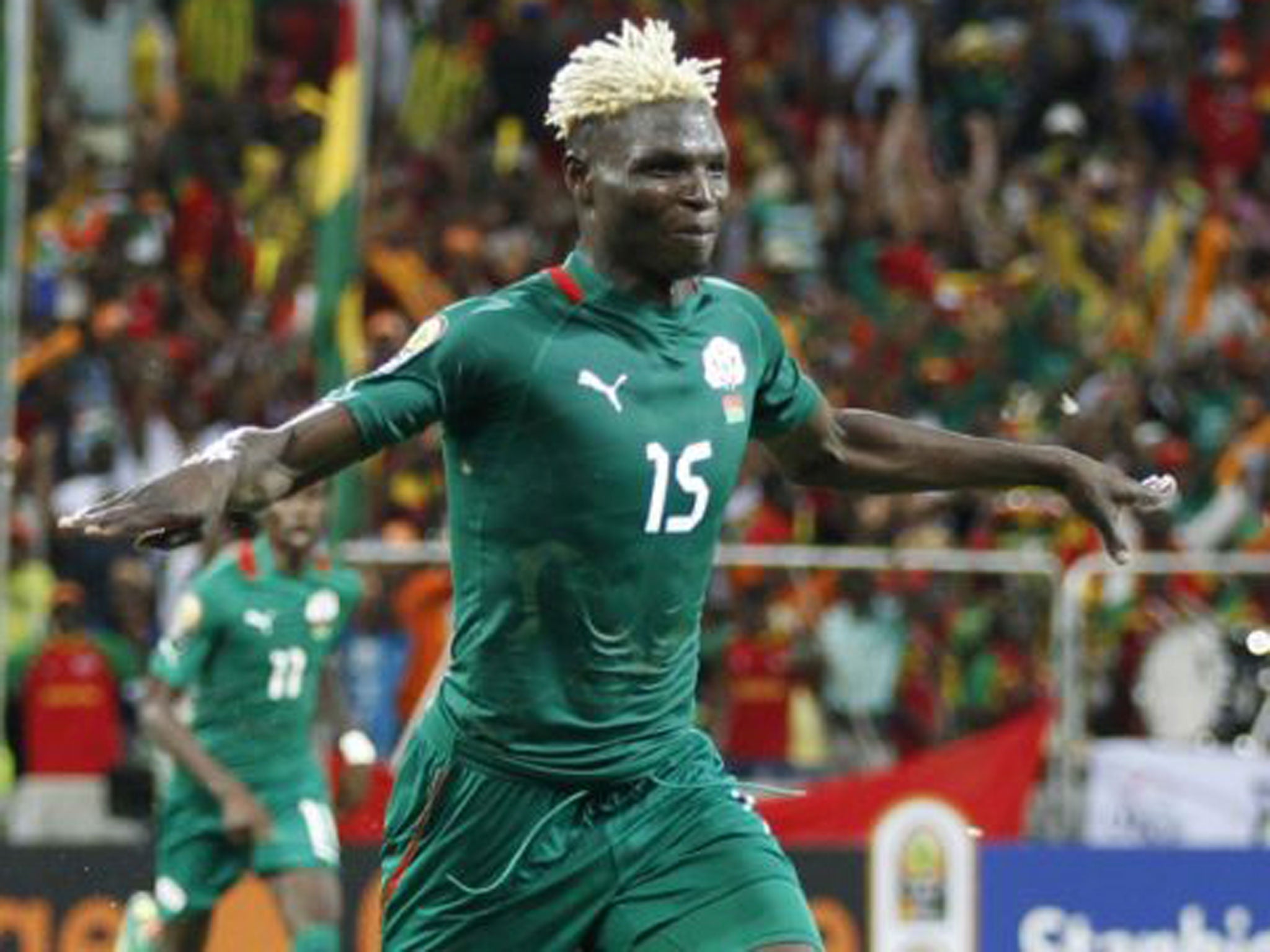African Cup of Nations: Stallions come up on rails despite moral handicap
Led by a despot and coached by a matchfixer, Burkina Faso make unlikely finalists

Your support helps us to tell the story
From reproductive rights to climate change to Big Tech, The Independent is on the ground when the story is developing. Whether it's investigating the financials of Elon Musk's pro-Trump PAC or producing our latest documentary, 'The A Word', which shines a light on the American women fighting for reproductive rights, we know how important it is to parse out the facts from the messaging.
At such a critical moment in US history, we need reporters on the ground. Your donation allows us to keep sending journalists to speak to both sides of the story.
The Independent is trusted by Americans across the entire political spectrum. And unlike many other quality news outlets, we choose not to lock Americans out of our reporting and analysis with paywalls. We believe quality journalism should be available to everyone, paid for by those who can afford it.
Your support makes all the difference.The customary British inclination to support the underdog may be tempered when Burkina Faso face Nigeria in the final of the African Cup of Nations. On one hand the Stallions’ coach is a condemned match-fixer and success in Johannesburg will provide one of the continent’s despots with reflected glory. There again, should Burkina Faso triumph, one of the world’s most benighted populations will be able to savour a rare moment of unbridled joy.
The land-locked West African nation is one of the world’s poorest. The annual GDP per capita is £820 (UK’s is £23,000) and it has been ranked the third least-developed country in the world with a male life expectancy of 50. That is nine years less than already enjoyed by President Blaise Compaoré, who has been in power since his predecessor died in a coup 24 years ago, and has subsequently prospered rather more than his subjects.
Tomorrow, though, all will be united. Whether watching in a palace or listening on a radio, the 16 million Burkinabés will be hoping their unheralded team, ranked 92 by Fifa, overturn one of the continent’s biggest sporting powers. Nigeria are two-time winners and have reached four of the last five World Cups. Burkina Faso have never appeared at a World Cup and only once gone beyond the opening round in the African Cup of Nations, in 1998 when they hosted the competition and reached the semi-finals.
Until this year that was the last time the Stallions had even won a match in these finals, but this time they topped a group which included Nigeria and defending champions Zambia. They drew with both, the former by dint of a 94th-minute equaliser from Lorient striker Alain Traoré, and went through by virtue of having the best result against makeweights Ethiopia.
Burkina Faso then put out two neighbours: Emmanuel Adebayor’s Togo 1-0 after extra-time in the quarter-finals , and much-fancied Ghana, on penalties, in the semis. This was despite a refereeing performance so poor that Slim Jedidi, the Tunisian official, was subsequently suspended. Most decisions were in Ghana’s favour, including the dismissal of Rennes’ Jonathan Pitroipa, Burkina Faso’s goalscorer against Togo. Pitroipa would have been suspended for the final, a major blow with Traore already out through injury, but CAF yesterday upheld his appeal.
While all the squad are based outside their own country, the bulk of them in Europe, few play in the big leagues. Aristide Bancé, who scored against Ghana, plays for Augsburg in the Bundesliga and half-a-dozen play in Ligue 1, including the captain, Charles Kaboré of Marseille. But others play in Ghana, Moldova and Qatar. The key figure is the man who has moulded this disparate group together, Belgian coach Paul Put. He, though, is a controversial figure having begun coaching in Africa only after being banned for three years following a match-fixing scandal when he was coach of Belgian club Lierse. Not that anyone partying in the Burkina Faso capital Ouagadougou is concerned.
Nigeria, with Chelsea’s Victor Moses and John Obi Mikel, are favourites to win and join Brazil and Spain in the Confederations Cup, but Burkina Faso are used to being written off. “When we arrived the only person who believed in us was the coach,” said Kaboré. Not any more.
Join our commenting forum
Join thought-provoking conversations, follow other Independent readers and see their replies
Comments